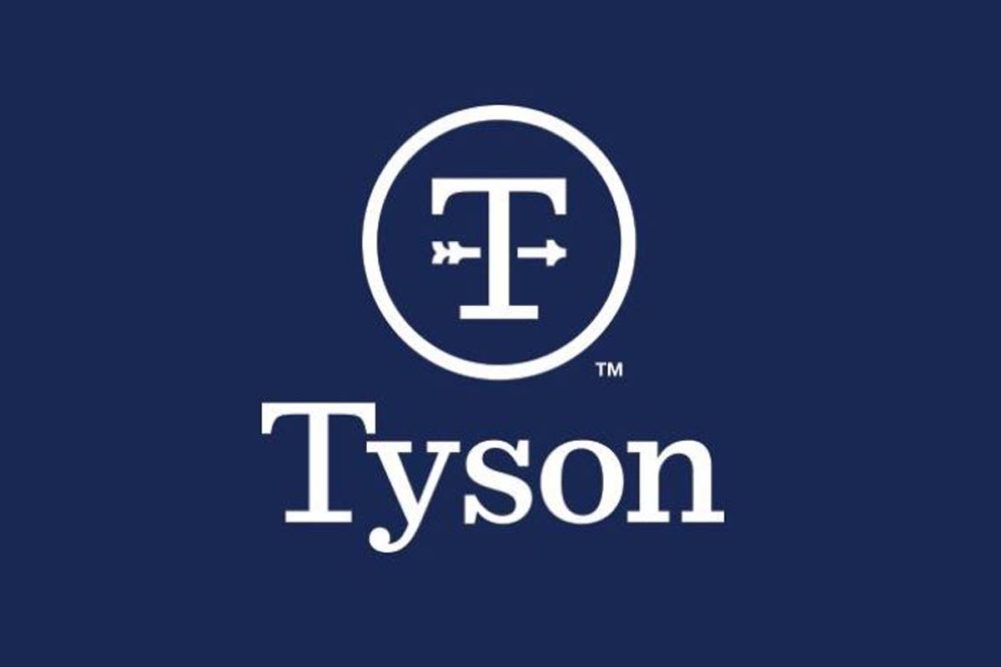SPRINGDALE, ARK. – As Tyson Foods reflected on progress made toward previously set goals for the company’s environmental, social and governance (ESG) commitments, it made sense to use that time as an opportunity to look ahead. So, the company’s 2021 Sustainability Report exhibits Tyson’s continued focus on its people and communities, driving product responsibility and working to sustain natural resources.
“Our world continues to evolve, and, because of that, we made the thoughtful approach to reevaluate our ESG strategy and renew our key focus areas to better reflect our journey to creating a more sustainable food system,” said John R. Tyson, executive vice president, Strategy & Chief Sustainability Officer, in the report. “At the end of 2021, we began mapping and prioritizing the ESG issues that are of substantial interest to our business and our stakeholders. The three refreshed pillars of our ESG strategy, the Formula to Feed to Future, encompass these critical opportunities.”
Tyson began work on long-range 2030 goals in metrics in 2021. The company engaged diverse internal and external partners to identify important issues where opportunities could be addressed. Based on this review, the company fine-tuned the pillars of its Formula to Feed the Future strategy, which broadened the focus areas Tyson is committed to positively impacting.
“Underpinning these focus areas is a strong foundation of corporate governance, business ethics, supply chain management, and data privacy and cybersecurity,” the company said.
Other key achievements supporting Tyson Foods’ Formula to Feed the Future framework include:
Talent Attraction & Development:
- Invested more than $500 million in wage increases and bonuses to the company’s hourly workforce, including $50 million in one-time, thank-you bonuses delivered at the end of the year.
- Expanded the Upward Academy adult education program to provide all US team members with free education through a four-year, $60 million investment.
- DEI: Established a Chief Diversity Officer and continued to have compensation metrics for company officers tied to diversity, equity and inclusion.
Human Rights & Labor Relations: Committed $1 million through the Tyson Immigration Partnership to expand legal and citizenship support to team members across the nation ensuring that everyone has access to training, education and legal support to becoming US citizens and welcome members of the communities in which Tyson operates.
Health, Safety and Wellbeing: Achieved over 96% COVID-19 vaccination rate in the company’s US workforce by target date of Nov. 1, 2021, as part of the company’s commitment to keep employees, their families and plant communities safe.
Community Investment: Donated 16 million+ pounds of protein — valued at $36 million and equivalent to 64 million meals—to support food banks, pantries and hunger relief organizations.
Driving Product Responsibility from Farm to Table:
- Product Innovation: Reached a $100 million+ total investment into Tyson Ventures to support startups and other companies focused on emerging proteins, new technologies for food and worker safety and sustainable production.
- Sustainable Packaging: Piloted sustainable packaging solutions for several products and began testing the validation of new recyclable, pulp fiber trays to replace traditional trays made of foam.
- Animal Health & Welfare: Integrated the Five Domains animal welfare framework across global operations and became the first beef processor to join the US CattleTrace program.
- Nutrition, Access & Affordability: Expanded our portfolio with several innovative new options, including Tyson Air Fried Chicken Bites, Tyson Chicken Sausage and Raised & Rooted Plant Based Bites.
- Product Quality & Safety: Continued to honor our commitment to produce safe, high-quality food that complies with all applicable laws and meets stringent quality, safety, and durability requirements. We also require suppliers of food contact packaging to be certified against and comply with the Global Food Safety Initiative (GFSI) guidelines for food contact packaging.
Working Toward Sustaining Natural Resources and Achieving Net Zero:
- Climate Action: Announced ambition to achieve net-zero greenhouse gas (GHG) emissions, including scope 1, 2 and 3 emissions, by 2050.
- Land Stewardship: Developed a beef-focused GHG emissions accounting framework to capture cradle-to-gate emissions and verify emission reductions through more sustainable agricultural practices.
- Water Stewardship: Achieved Alliance for Water Stewardship verification for three US plants.
- Waste Reduction: Achieved Zero Waste to Landfill gold-level validation at six US plants where 95-99% of certain waste streams have been diverted from landfills.


